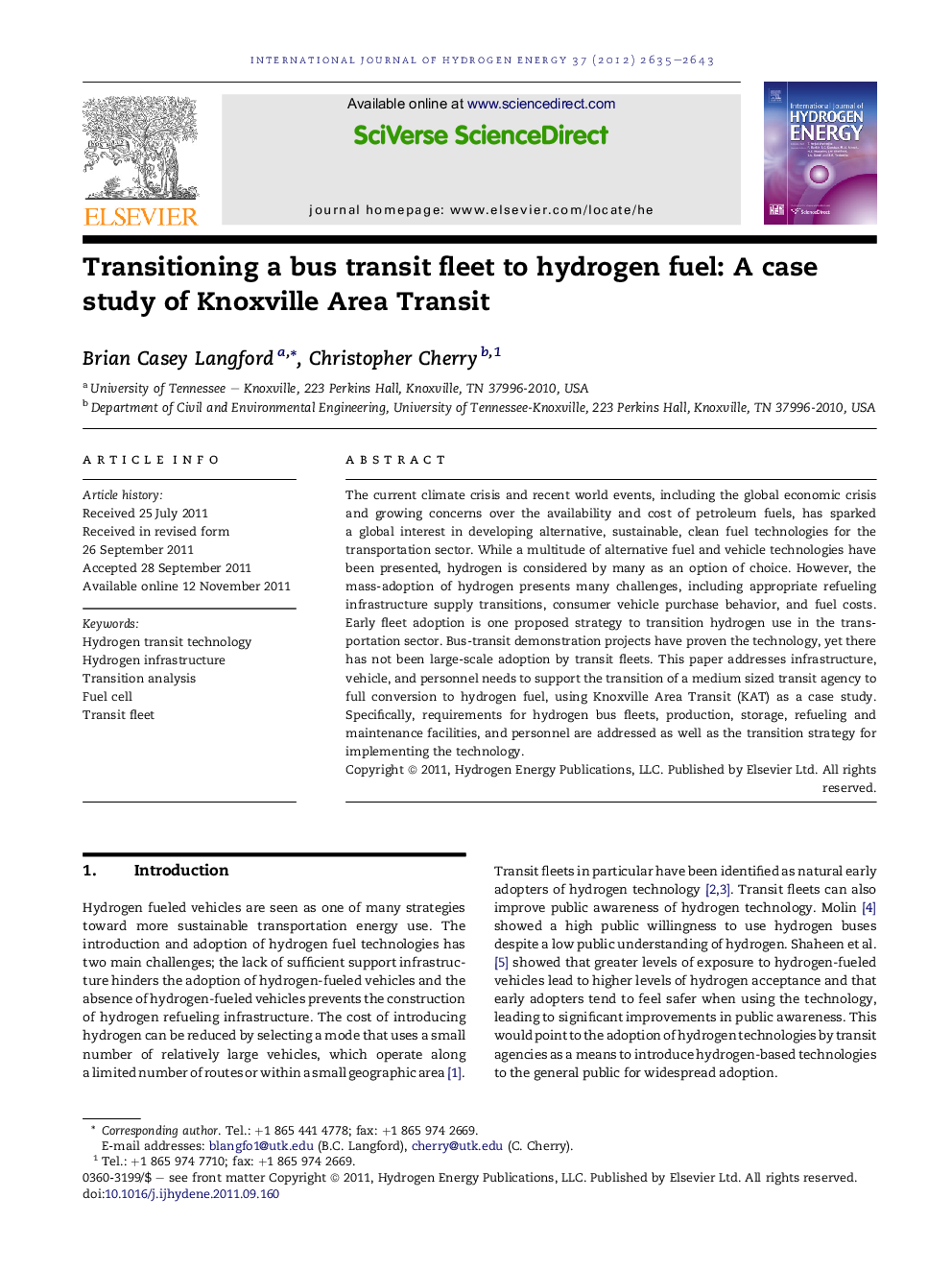| Article ID | Journal | Published Year | Pages | File Type |
|---|---|---|---|---|
| 1271685 | International Journal of Hydrogen Energy | 2012 | 9 Pages |
The current climate crisis and recent world events, including the global economic crisis and growing concerns over the availability and cost of petroleum fuels, has sparked a global interest in developing alternative, sustainable, clean fuel technologies for the transportation sector. While a multitude of alternative fuel and vehicle technologies have been presented, hydrogen is considered by many as an option of choice. However, the mass-adoption of hydrogen presents many challenges, including appropriate refueling infrastructure supply transitions, consumer vehicle purchase behavior, and fuel costs. Early fleet adoption is one proposed strategy to transition hydrogen use in the transportation sector. Bus-transit demonstration projects have proven the technology, yet there has not been large-scale adoption by transit fleets. This paper addresses infrastructure, vehicle, and personnel needs to support the transition of a medium sized transit agency to full conversion to hydrogen fuel, using Knoxville Area Transit (KAT) as a case study. Specifically, requirements for hydrogen bus fleets, production, storage, refueling and maintenance facilities, and personnel are addressed as well as the transition strategy for implementing the technology.
► We examine the transition of a medium size transit agency to hydrogen fuel. ► Full transition will require an increase in fleet size of 42 percent for KAT. ► Requirements for facilities and personnel to support the fleet are presented. ► Strategies for completing the transition are presented. ► Strategic facility location to serve KAT can also serve 86 percent of Knox County.
